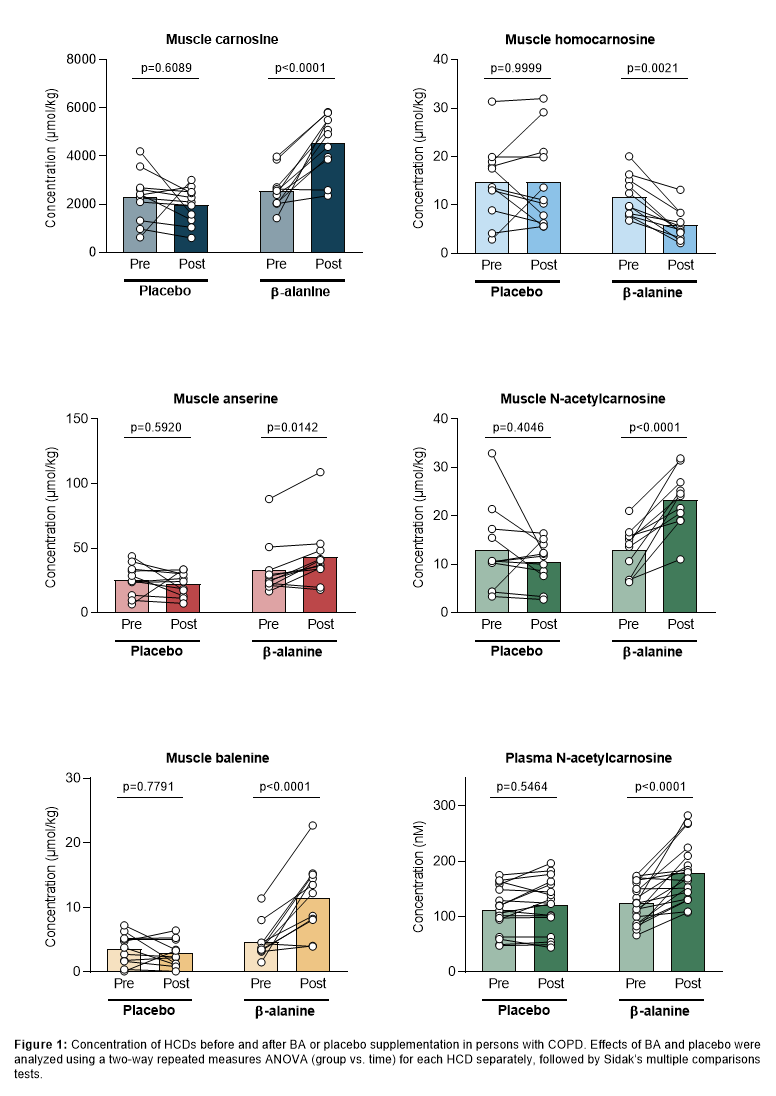Abstract
Background: Carnosine is the archetype of a family of histidine-containing dipeptides (HCDs) that play a pivotal role in skeletal muscle proton buffering and antioxidant defense. Oral long-term supplementation of the carnosine precursor beta-alanine (BA) increases muscle carnosine in persons with COPD, but its effect on other muscle HCDs is unclear.
Method: We performed highly sensitive and targeted liquid-chromatography with tandem mass spectrometry on m. vastus lateralis and plasma samples previously collected for a randomized placebo(PL)-controlled trial (NCT02770417) investigating 12 weeks of BA supplementation in persons with COPD (n=22, 64±6 years, 15 males, 59±15 FEV1%pred). The content of five HCDs in muscle (carnosine, anserine, balenine, N-acetylcarnosine [NAC] and homocarnosine) and the most stable HCD in plasma (NAC) were determined.
Results: Besides carnosine (+89%), BA supplementation also led to increased muscle anserine (+38%), balenine (+199%) and NAC (+197%), but decreased homocarnosine (-50%) in persons with COPD, while no change was observed in the PL group (Fig1). Plasma NAC correlates to intramuscular carnosine content, and increased proportionally to muscle carnosine content following BA intake (rs=0.629, P<0.001).
Conclusion: BA supplementation affects all muscle HCDs in persons with COPD. Plasma NAC might be secreted from the muscle and act as circulatory marker for HCD loading.
